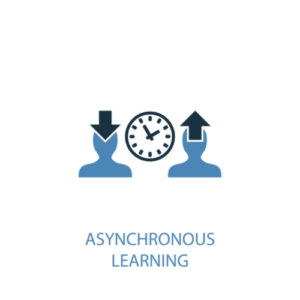
As a senior, the notion of going back to school (whether for just a class or a complete degree program) can be both exhilarating and overwhelming. You may be wondering whether or not the idea is a good one and exactly how to move forward with the endeavor. These are completely normal concerns, but the fact is, senior citizens do make the decision to return to school each and every academic year. The trend is actually growing and for good reason!
In this comprehensive guide to returning to school for senior citizens, you’ll learn:
- How online education can benefit you
- How to enroll in online school
- How online learning works
- Where to find online courses for seniors
- What skills you need to succeed in online classes
- Things to consider before returning to school as a senior
- Which states offer free or reduced tuition for seniors
- How to find schools that offer free online college courses for senior citizens
- Non-conventional ways to save money on college courses
- What scholarships for 55 and older are available
- And more!
Let’s get started. There’s no time to waste!
Benefits of Going Back to School for Seniors
Making the grade or earning an academic degree are obvious incentives for seniors to return to the classroom, but there are many other benefits as well.
An Active Mind Has Health Benefits

As we get older, our physical bodies aren’t the only things that decline. Unfortunately, our minds can deteriorate as well. When this happens, the memory may suffer, and we may lose some of the clarity we had as younger people. The good news is that there are things you can do to keep your mind sharp, and going back to school would definitely qualify as one of them!
Whether you choose to take a single course or pursue a degree, your studies will help keep your brain healthy. Continuing education may even help you prevent serious diseases that affect older adults such as Alzheimer’s and dementia, for example. These are very compelling reasons to hit the books, even if you have to grab your reading glasses to do so!
Collaboration and Companionship

Learning environments (whether physical or virtual) provide natural opportunities to work collaboratively and form bonds with others. These are opportunities many seniors don’t get very often, especially if they live alone or aren’t members of a church or other social organization. Meaningful interaction with others is important for people of any age, and for seniors, in particular, it can help ward off feelings of loneliness and depression.
Many times, it’s a win-win situation when older adults return to the classroom. Professors often report that these students impact the learning environment positively by contributing their vast life experiences to class discussions. More traditional students often find mentors in these older classmates, learning from the type of wisdom only age can provide.
Career Change or Advancement

The job market can be tough for workers over the age of 50. Still, with dwindling senior benefits like Social Security, for instance, and sparse retirement funds being all too common, continuing to work at this age has become increasingly necessary. According to a 2017 report on labor force trends by the Bureau of Labor Statistics (BLS), about 40% of individuals over the age of 55 are actively looking for work. The agency predicts that the labor force participation rate for older adults will continue to grow through 2024, with the fastest-growing age groups being comprised of seniors over the age of 65. Taking online classes or even pursuing an online degree can help you become more employable or put you in the best position possible for advancement in your current role.
Reduced Tuition for Seniors

Many colleges and universities all over the United States now offer reduced tuition and special types of financial aid for older adults. Of course, these incentives will vary from school to school and possibly even from program to program.
Believe it or not, each and every state in the United States has a program for free or cheap education for senior citizens. Many such programs require that students attend a state-sponsored college or university.
Benefits of Online Colleges for Seniors
Senior citizens in today’s society are healthier than ever before, so there’s usually no reason they can’t attend classes on campus. However, some seniors have valid reasons why traditional classes just aren’t suited for them. For others, an online experience is simply a matter of personal preference. Thankfully, there are plenty of online universities for seniors and other nontraditional students.
Educational Accessibility for Older Adults

Many seniors suffer from health conditions that make navigating a physical campus difficult, if not impossible. Fortunately, online education has eliminated this burden altogether. With advanced learning technologies, older adults can benefit from high-quality instruction and interactive learning experiences, all from the comfort of home. This is one of the many reasons online courses for retirees have become so popular.
Distance learning also alleviates the discomfort many senior citizens feel when they realize they’re one of the oldest people in the classroom. Though it’s more common for older adults to return to school today than in the past, it may still present a social challenge. Online education transcends the boundaries of age, however. After all, when two people are sending messages back and forth online or posting to discussion forums, it hardly matters how old they are!
Relaxed Pace of Online Courses for Seniors

When you think of the college experience, you may envision disheveled students bustling back and forth to class or pulling all-nighters to meet an impending deadline. While this may be the case for many traditional students who attend school on campus, it’s not typical for online students. Online courses and degree programs are often specifically designed for working adults and other nontraditional students who desire a less structured experience. Think of relaxing on the couch with your laptop, sipping a cup of tea while watching an online lecture. Now can you see why online colleges for senior citizens are so popular?
Accelerated Online Programs for Senior Citizens
For older students who are go-getters by nature, an accelerated online program may be a better fit. With asynchronous online classes, students are free to progress through coursework at a faster pace if they wish. This means they’ll have the opportunity to finish their courses and degrees sooner and get on with their future plans, whether it be a career or more classes! California Baptist University, for instance, offers several accelerated online degree programs for both undergraduate and graduate students, many of which can be completed in just 16 months.
Asynchronous Vs. Synchronous Online Programs for Seniors

Although most online programs are more flexible than on-campus programs, they are not all the same. Specifically, there are two types of course delivery formats online programs take: asynchronous and synchronous. Asynchronous programs are the more flexible of the two. These offerings are truly self-paced, allowing students to review course content and complete assignments on their own time. While there may still be some pre-set deadlines students must meet, there are no specific times that students must log on to learning platforms or participate in class meetings. Asynchronous programs are particularly well-suited to senior citizens who may need additional time to finish required readings or other assignments.
Synchronous online courses and degree programs can be significantly more demanding when it comes to scheduling. They often require that students log on to their learning platforms several times a week to view streaming lectures and participate in live discussions, for example. Some seniors may prefer this enhanced interactivity and structure to asynchronous course delivery, despite the less relaxed pace. When choosing what type of online courses for retirees is best for you, it’s all about finding the right fit for your time constraints and learning style!
Keep an eye out for schools like New Mexico State University, for example, that offer programs featuring both asynchronous and synchronous options. Other universities are home to online programs that blend these two formats.
Part-Time Vs. Full-Time Online Universities for Seniors

Mature students have many different opportunities for scheduling their online courses. In many cases, you can write your own course calendar! Depending on the school you plan to attend, it is possible to take just one course per semester or pursue an online degree by taking a part-time or full-time course load. Many schools like the University of Washington offer both part-time and full-time online degrees for adult students.
The decision to pursue a part-time or full-time program is a personal decision. Many older adults have a wide-open schedule that will accommodate a full-time course load nicely. Others have non-academic responsibilities that inhibit them from committing anything more than a part-time course schedule; or, they may just prefer to leave their schedules open to other activities.
There is no right or wrong number of online courses to take at one time. You should keep in mind though that the fuller your schedule is, the quicker you will complete your degree or plan of study. This could be an important consideration if you’re earning a necessary credential to begin a new career or advance in a current role.
Things for Seniors to Consider Before Pursuing Online Courses/Degree Programs

Clearly, there are many benefits of returning to school as an older adult. However, that doesn’t mean that it’s the right choice for everyone. Senior citizens are unique individuals with different needs and desires.
Furthermore, returning to school is not a decision one should take lightly. This is especially true if you’re considering enrolling in an online degree program for older adults. Do yourself a favor and take a considerable amount of time to ponder the choice, weighing the advantages and disadvantages before taking the plunge. While the idea of hitting the books may kindle romantic or nostalgic feelings of being young again, don’t let the excitement hinder you from making a wise and informed decision about your future.
Your situation will inevitably be unique, so the factors you’ll need to weigh will vary. Even so, there are things all older adults should consider before enrolling in an online course for seniors.
Balancing Responsibilities

Traditional college students fresh out of high school don’t typically have many other responsibilities to attend to. For many freshmen, college is simply the next logical step to becoming a self-sufficient adult.
For more mature students, though, the situation can be a great deal different. Often, these non-traditional students have professional and family-related obligations that could make going back to school more challenging. While the undertaking is certainly not impossible, you’ll need to take a hard look at your current schedule, including the other tasks and people you’re responsible for from day to day. Then, consider how the decision to go back to school will impact your daily life as well as the lives of others around you, including partners and children, for instance.
Have open and honest conversations with anyone in your life who will be impacted by your decision to return to school. Finally, make a plan together. You’ll be much more confident in your decision if you have a clear directive for how things will go once you’re back in school.
Financial Matters

Going back to school—whether it’s for a single class or an entire degree program–usually comes with some sort of financial strain. This is true even if your classes are funded by financial aid since it’s still your obligation to procure the funds and offset any additional costs such as fees, books, and other school supplies, for example.
You may also need to take into account any loss of income that might result from your decision to become a student again. For instance, will you have to quit your job or switch to a part-time schedule in order to pursue your education? Will you need to put your small business on the back burner while you work on your degree? There are many possible scenarios, of course, but these are the types of questions you’ll need to ask yourself before you can move forward with online courses or degree programs with firm financial footing.
Personal and Professional Goals

Evaluating exactly why you’re considering returning to school in your golden years is a good exercise and can help you decide what type of online program or course is right for you. There are many incentives that motivate seniors to pursue higher education, and we’ve discussed many of them already such as career change and advancement and learning for learning’s sake, for instance. All of these incentives are valid reasons for enrolling in a course or degree program via distance education. Even so, it’s good to examine your own personal motivators in order to have a clear idea of precisely what you hope to accomplish through online courses for retirees.
How to Enroll in Online Courses For Seniors

The school enrollment process for senior citizens is similar to that of younger students, but there may be additional requirements as well. In most cases, there will be an age requirement in order to enroll in college as a senior citizen. The minimum age will vary from state to state and school to school, but it is usually 60 or 65. This enrollment status will qualify you for certain discounts, waivers, and resources reserved exclusively for older adults.
After meeting minimum age requirements, the admissions process for seniors is similar to the enrollment of any prospective student. The college or university will request documentation to prove that students meet certain minimum admissions criteria, including a high school diploma or equivalent, letters of recommendation, and/or personal essays or letters of intent.
Some of the admissions requirements for traditional students may be waived for senior citizens. For example, there is usually no need to submit scores for college entrance examinations such as the SAT or ACT.
These are general guidelines for admission into colleges and universities as a senior. Keep in mind that each school reserves the right to set their own admissions standards, and these criteria can change from year to year. Therefore, for the most accurate and up-to-date information, it’s best to contact an admissions counselor at the institution you’re interested in attending.
What Is Online School Like?
For many seniors, the notion of going back to school can be somewhat unnerving, and the idea of doing it online can be even more intimidating. These are normal fears, and they are often alleviated once you understand more about what the online education environment is actually like. It’s really not as difficult to take classes online as you might think!
Technical Knowledge Needed for Online Education

Some senior citizens are more comfortable using digital technology than others. Before you shy away from online courses due to a lack of computer proficiency, keep in mind that most online programs are extremely user-friendly. Over the years, advancements in distance learning technology have made learning online quite easy, and even fun! In most cases, if you can conduct a Google search and use Facebook, you can complete an online course. Here are some other skills that will help you be successful in an online learning environment:
- Typing/keyboard skills
- Microsoft Office proficiency (especially MS Word)
- Knowledge of online etiquette
- Email proficiency
- Ability to download and install software
Personal Characteristics Necessary for Online Learners
Not all of the skills needed to successfully learn and study online are technical, though. Others are less about practical know-how and more about personal attributes. These are what employers might refer to as “soft skills,” and they’re absolutely essential to success as an online student—no matter how old you are!
Written Communication Skills

Written communication skills are necessary for any type of college class, but this is particularly true for online courses. Because most of the communication that takes place in an online program— amongst students and between students and professors— will take place online, a lot of it will be in writing. You may be required to post answers to discussion questions to a forum, participate in online chats with fellow students, write essays demonstrating your learning, communicate with professors via email, and more. Therefore, the better you are at expressing yourself via the written word, the more successful you’ll be in your virtual studies.
Time Management

As we mentioned already, many online courses are self-paced, meaning you are free to complete course assignments at your own pace. With this freedom, though, comes a great deal of responsibility. Most likely, you won’t have a professor standing over your shoulder, and in many cases, you won’t even have weekly class meetings to remind you of what you need to be doing and when. That’s where time management skills become imperative. In online programs, it’s on you to schedule your study time and ensure that coursework is completed within the allotted time frame. As a responsible and fully grown adult, though, this should be no problem for you!
Self-Discipline

As a mature student, you’ve had a number of years to develop your strengths in the area of self-discipline. It’s a good thing too because when you return to school, these skills are going to come in handy. Traditionally, college students have had a fair amount of autonomy when it comes to their studies. Online students typically have even more independence, however. In virtual learning environments, there’s very little outside pressure to complete assignments. That means you’ll have to find your own intrinsic motivation to drive you onward towards success.
Financial Aid (Including Scholarships and Grants) for Senior Citizens

We tend to think of higher education as a financial burden, but when you’re a senior, it doesn’t have to be! Many older adults mistakenly assume that scholarships and grants are reserved exclusively for traditional college-aged students, but this simply isn’t the case. Financial aid (including scholarships for senior citizens returning to college) is available for mature students, but you do need to know where to look.
Fill Out the FAFSA
Because many senior citizens think that financial aid for school is limited to recent high school graduates, they fail to fill out the Free Application for Federal Student Aid (FAFSA). This is a big mistake though and can cost you thousands of dollars in financial aid that could help you fund your education. There is no age limit on federal financial aid. No matter how old you are, filling out the FAFSA is necessary in order for the federal government to determine your eligibility for grants, work-study programs, loans, and other forms of financial aid.
Federal Grants for Senior Citizens
Once you fill out the FAFSA, you will be automatically considered for certain federal grants like the Pell Grant, for instance. The Pell Grant is awarded based on financial need and has no age limit. Since it’s a grant (not a loan), you don’t have to pay this money back.
Scholarships for 55 And Older
Like grants, scholarships are a type of financial aid for school that does not have to be paid back. There are many scholarships reserved exclusively for older adults and senior citizens. Here are a few examples:
- Jeanette Rankin Women’s Scholarship Fund
- Association for Nontraditional Students in Higher Education (ANSHE) Scholarship Program
- Alpha Sigma Lambda Annual Scholarship
- Executive Women International Adult Students in Scholastic Transition (ASIST)
Tuition Waivers for Seniors
Colleges and universities in many states offer tuition waivers to senior citizens. These waiver programs usually come with some stipulations, though, so it’s best to do your homework ahead of time. Some common conditions include a minimum age requirement, a cap on how many classes you can take per term, and space available in each course.
For example, the University of West Florida requires that seniors who participate in its tuition waiver program be at least 60 years of age and take no more than six credit hours of courses per semester. UWF’s tuition waiver only allows seniors to audit classes for free. This means they won’t actually receive any college credit; the waiver only covers the learning experience.
The same is true for Missouri State University, though seniors must be at least 62 years of age to qualify for the school’s special fee waiver program for seniors.
This isn’t the case for every college, though. For example, state-sponsored schools in Virginia (such as Virginia State University) are bound by the Senior Citizens Higher Education Act of 1974, requiring them to waive tuition in for-credit courses and degree programs for seniors who are classified as low-income.
Other programs have stipulations that may limit you to a particular type of school. For example, the Alabama Senior Adult Scholarship Program covers tuition for older students age 60 and over, but only applies to public two-year colleges such as Central Alabama Community College.
The following states offer some sort of tuition waiver for senior citizens:
- Alabama
- Alaska
- Arkansas
- Connecticut
- Florida
- Georgia
- Illinois
- Kentucky
- Maine
- Maryland
- Massachusetts
- Michigan
- Minnesota
- New Hampshire
- New Jersey
- North Carolina
- Ohio
- Rhode Island
- South Dakota
- Texas
- Vermont
- Virginia
- Washington D.C.
For more information on age-specific tuition waivers in your state, contact a financial aid representative at one of the state-sponsored schools in your area.
Other Ways to Save on Online Courses for Older Adults
Financial aid in the form of scholarship, loans, and grants are the go-to methods for funding educational pursuits, but they’re not the only ways you can save money on college. Here are some additional penny-pinching techniques to aid your higher education pursuits.
Consider Community College
An increasing number of community colleges are offering online courses at significantly lower tuition costs than four-year colleges and universities. These courses are often comparable in terms of the curriculum and quality of instruction. In some cases, the only difference is the price tag. Many times, community college credits are transferrable as well, meaning if you’re seeking a higher degree, you can finish it at the university of your choice.
Opt to Audit
If your incentives for going back to school as a retiree are purely intrinsic and you’re not aiming for a degree or credential, then auditing classes may be a good alternative to tuition-based enrollment. Auditing a course is usually free or extremely cheap. For instance, courses from Georgetown University’s School of Continuing Studies are just $50 each. When you audit a class as a senior, you typically aren’t required to complete all class assignments. Not only will you save money with this route, but you’ll also have the liberty to truly enjoy learning— not for a grade, but just for fun!
Take CLEP Exams
Older adults returning to school with the intention of earning a degree may benefit financially from taking College-Level Examination Program (CLEP) exams. These tests, administered by The College Board, allow students to earn college credit for what they have already learned. There are 34 different exams available, representing dozens of opportunities to waive expensive classes by earning qualifying scores on subject matter tests. Nearly 3,000 colleges and universities across the country accept CLEP exams in lieu of course completion. Some are more CLEP-friendly than others, though. Colorado State University offers credit for 29 different CLEP examinations, for example, while The University of Wisconsin only accepts scores for 13 subject area tests.
Volunteer
Yes, volunteering your time can actually help you save money on your online courses and/or degree program. Under the Edward M. Kennedy Serve America Act, you’ll receive a $1,000 education award to apply to your program of choice after completing 350 hours of volunteer service. Participants must be age 55 or older.
Frequently-Asked Questions for Senior Citizens Interested In Online Education
Going back to school (or enrolling for the first time) is a big decision at any age. Higher education for seniors comes with its own particular set of concerns, though. It’s natural to have questions. Below, we’ll answer some of the questions we receive most frequently.
Q: Should I get an online degree or simply take online courses for seniors?
A: It depends. Online classes tend to be less expensive and require less of a time commitment. Online degree programs are more involved and can qualify you for more job opportunities, though. Your choice should depend on your learning and professional goals as well as your financial situation.
Q: Can I afford online school?
A: There’s a good chance you can if you take advantage of reduced tuition and financial aid for seniors. You still need to evaluate your personal finances before committing yourself to online school, however. Keep in mind that it’s also possible to locate online degrees for seniors at no cost.
Q: Which online courses for retirees should I take?
A: The choice is entirely up to you! Think about your interests as well as any personal or professional goals you’ve set for yourself. The options for online courses for seniors are nearly limitless.
Q: Do I need an online degree to return to the workforce?
A: Not necessarily. In some cases, a single online course or certificate program is enough to get you hired. Other times, an online degree may indeed be required. It really depends on the industry you’re hoping to work in as well as the application requirements of specific employers.
Q: Do tuition waivers cover all fees for online classes?
A: Sometimes, but not always. As with anything else, it’s important to read the fine print!
Additional Resources for Seniors Considering Online Degrees and Courses
There are numerous resources available for senior citizens considering online education. Here are some additional resources we’ve identified:
- AARP Job Board
- National Council on Aging
- Encore.org
- FastWeb
- Bernard Osher Foundation
- Bureau of Labor Statistics
Related Rankings:
- 50 Best Colleges for Adult Education
- 4 Inspiring Adult NonTraditional Students
- 30 Best Colleges Online
- 50 Great Scholarships for Non-traditional Students
- 20 Great Scholarships for Older Students
- The 100 Most Affordable U.S. Colleges Online
- 45 Top Free Tuition Scholarships for College (Receiving Public-Private Funding)